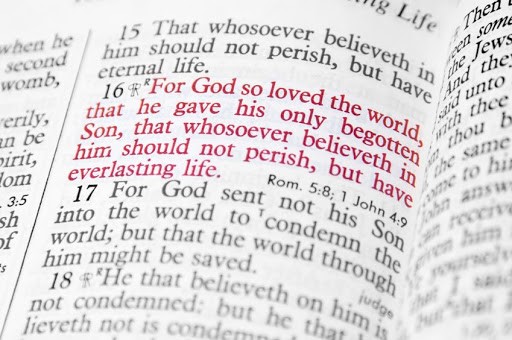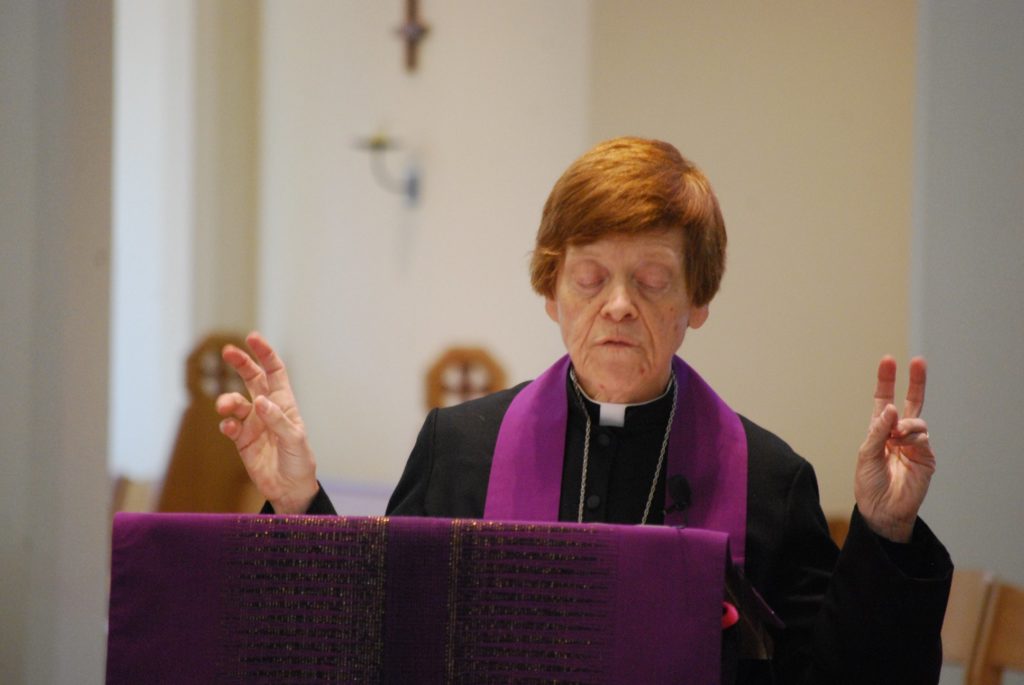Sermon 3/8/2020 “Whosoever…”
Preacher: Jo J. Belser
Location: Church of the Resurrection from our offices in Alexandria, VA
Text: John 3:16-17
Day: 2Lent, Year A during a pandemic
Martin Luther—the one of Protestant Reformation fame—called one of the verses in our gospel lesson today, “the miniature gospel,” and “a Bible in itself.” As he lay dying, he repeated John 3:16 three times.
Most Christians can quote this verse:

“For God so loved the world that he gave his only Son, so that WHOSOEVER believes in him should not perish but have everlasting life.”
Don’t you find this verse astonishing, that the God who created all things loves what he has created? God LOVES the world he created, the world we live in, the world that doesn’t seem to function quite right. WE critique our world. We notice that “right” doesn’t always prevail. WE get indignant about viruses and price gouging and death. When GOD looks at what he has created—when God looks at US, God loves US beyond comprehending.
- God didn’t create death; not directly.
- God doesn’t like sin; God absolves sin and redeems sinners.
- In short, God is pure love, and God loves everyone.
How do I know God loves each of us? God gave each of us life. And God gives each of us the opportunity to receive life fully and forever, to have the kind of life that begins now and survives even death. God gave us his only Son, Christ Jesus, to ensure we know of his love.
Over the years since Jesus said the words that we heard today in John 3:16-17, we have found assurance and hope in them. We do not have to accept that death has the final word. “Love endures; love wins!”
But we humans have gotten mired in various aspects of the promise contained in today’s lesson. “What do I have to do to cash in on Jesus’ promise?” we have asked. Then we have condemned the person or group of persons who WE think are beyond salvation, beyond God’s love. Notice that God loves the whole world, loves all his creation; we are the ones who “remake” God in our image and condemn. But God sent his Son to offer us love and life and hope, not condemnation.
Another of the ways we Christians have gotten mired in today’s gospel lesson is we have reserved its promise for ourselves. “Who will live forever? Who will be saved?” we ask. Jesus’ answer is “whosoever,” which is to say, “all people.”
I count on that one word, “WHOSOEVER.” The only asterisk, the only caveat, Jesus placed on WHOSOEVER is about belief: we must believe in him and his assurance of God’s love.
- We don’t have to be rich—or poor.
- We don’t have to be White or any particular color.
- We don’t have to be young—or old.
- We don’t have to be straight.
- We don’t have to be employed.
But we must believe in Christ Jesus.
Jesus tells us today that we can’t even perceive the truth of his words without being “born from above.” Not, as he told Nicodemus, be “born again,” but “born from above” by being infused with God’s Spirit. God’s Spirit—the Holy Spirit—leads us into all truth, not by taking us by the hand and leading us, not by prodding us from behind, but by joining us as part of our very being.
How do we receive the Holy Spirit? By faith. You do not have to beg God to fill you with His Holy Spirit. You do not have to fast or weep or beg or plead. Talk to God and listen to what God tells you to do to prepare to give his Spirit a home in you.
Over the years, we flawed humans have re-defined this promise. And, being flawed and limited in comprehension, we have side-tracked the promise. “We must be baptized to be born of the Spirit,” some say. “No,” others say, “we need only to believe.” And so, we overlook what Jesus himself said, “the Spirit goes where [the Spirit] will.” The Spirit doesn’t answer to us. And so, when our vision gets dimmed, God periodically reminds us “God is God and we are not God” by ushering a whole new people we have excluded into new grace, reminding us that God loves “WHOSOEVER,” whosoever God has created who believes in his Son.
We Christians can get mired in this “miniature Bible” passage by using it to answer old questions.
- We’ve told people who wanted to know HOW to avail themselves of the promise they need to be baptized or to receive the Eucharist each week when what Jesus requires is that we believe in him.
- We’ve told people who wanted to know WHO the promise is for OUR prejudices about WHO, not that the promise is for WHOSOEVER believes.
- Now we are telling people who reject that they are perishing and who don’t believe in eternity how to avoid eternal death.
The question of our age is how to have authentic life; what will we share with the people of our age about today’s gospel lesson? My witness is this:
“The world and the church condemned me, but Jesus does not. I was angry at God, angry at the people who claimed the promise of life, claimed love with their lips, but lived in a way that withheld the promise from others and kept it only for themselves. My anger limited me, kept me from being wholly alive, drained positivity from me until my life was a kind of living death—akin to living with addiction but with no hope of a cure. Then the idea came to me through people who exuded love, came to me in Jesus’ own words, that the one who created sunrise, the one who created nature, the one who created ME, loves me beyond compare—loves everyone and everything he has created beyond measure. And all I had to do to accept the creator’s promise of life—whole, abundant, life—is to believe that this promised life is for me, too.
Very truly, I tell you, I speak of what I know and testify to how my belief in Jesus’ words has changed my existence from a living death to authentic life. Not that I am perfect, any more than you are perfect, but I am proof positive that abundant life exists here and now and is available for the believing.
And we—Church of the Resurrection, 56 years into an improbable existence—aren’t WE also proof positive of eternal life?


